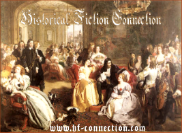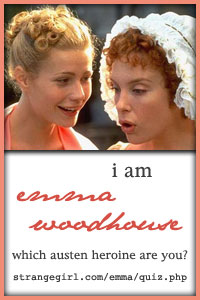3.5 roses
 Being the die hard Ricardian that I am, this book about his wife Anne Neville caught my eye and I had to see how this author treated my favorite historical male. While there are almost an unending supply of novels focusing on the Wars of the Roses and Richard III, I know of only one that focuses on Anne and her life (Plaidy's The Reluctant Queen). Ms. O'Brien's novel focuses on Anne's early years and her relationships with the various (and major) players in the Wars of the Roses. I was not disappointed but I wasn't blown away by any stretch.
Being the die hard Ricardian that I am, this book about his wife Anne Neville caught my eye and I had to see how this author treated my favorite historical male. While there are almost an unending supply of novels focusing on the Wars of the Roses and Richard III, I know of only one that focuses on Anne and her life (Plaidy's The Reluctant Queen). Ms. O'Brien's novel focuses on Anne's early years and her relationships with the various (and major) players in the Wars of the Roses. I was not disappointed but I wasn't blown away by any stretch.I am not going to rehash the ins and outs of the Wars of the Roses here (if anyone wants to know there is endless information available on the internet). The narrator of the novel is Anne Neville, a figure well known to readers of historical fiction: daughter of the Earl of Warwick (the Kingmaker), widow of Edward of Lancaster, and wife of Richard, Duke of Gloucester (Richard III). However, that is pretty much all that is known about the daughter of the most powerful Earl in England and one time Queen of England. We follow her through her youth at Middleham where she meets Richard, her father's quarrels with Edward IV, their exile to France and her disastrous marriage to Edward of Lancaster (son of Henry VI and Margaret of Anjou), the drama surrounding the issue of her inheritance, and her marriage to Richard. Ms. O'Brien has attempted to "fill in the gaps" and has created a voice for Anne which I did not find too unbelievable. Whereas in many novels about Richard, Anne comes across rather quiet, sickly, and insignificant, Ms. O'Brien's Anne is feisty, opinionated, and passionate; this Anne has a backbone which most other interpretations lack. Women during this time period are usually seen as being quite passive with little to no say so in what happens to them and while O'Brien's Anne is well aware that she has no choice and must do as she is told, she certainly has a strong opinion on what is happening to her and to those around her. I found this look at Anne rather interesting. I have to admit that my heart went out to her during the marriage to Edward of Lancaster as she endured all the humiliation heaped upon her. All that being said I did find the fact that she usually called her mother and father "the Earl" or "the Countess" a bit puzzling and her constant instance that Richard needed to declare his true feelings for her got annoying.
The author's treatment of other characters is pretty much in line with what you would expect in a novel about the time period. I did like her Richard as he was, without a doubt, Anne's "knight in shining armor" but he certainly had his flaws and ambitions. While I don't mind a "saintly" Richard, it is much easier to believe that he was a good man, with imperfections of course, and merely doing what needed to be done to survive in a very violent and ruthless time period. I am (obviously) not a fan of Margaret of Anjou or her son but the strange twist the author threw in concerning these two characters really seemed odd and just doesn't fit with history. George, Duke of Clarance, and Anne's sister Isabel, really come across as villains in the story and their behavior throughout the novel made my skin crawl. We don't see that much of Edward IV or Elizabeth Woodville and the personalities of Anne's parents aren't illuminated in much detail either (though the Earl certainly comes across as extremely ambitious).
As for the writing itself, some will not like the fact that it is told completely from Anne's point of view, restricting the author in what she could tell in the story. While I am not a huge fan of historical fiction being told in the first person (because it is so restrictive) I didn't really have a problem with it here, though that could be because I am already very familiar with the history of the period and didn't need to be told what all was happening. As in any historical fiction novel, the author has taken some liberties with known history but there wasn't really anything that made me cringe (the Margaret of Anjou/Edward of Lancaster twist the exception) or that ruined the novel for me. The narrative stops at the birth of Richard and Anne's son so a reader expecting to see Anne's thoughts on Richard's governance of the North and the drama of his reign will be disappointed (though the way it was left leaves it open for the author to continue their story in another novel). This is not a very deep novel and does not bring anything new to the table in regards to information about Anne Neville. It probably could be considered a bit more of a "historical romance" than a "historical fiction" as the main emphasis seems to be Anne and Richard's relationship.
This certainly is not a bad novel and I can easily recommend it to those unfamiliar with the Wars of the Roses and Richard III's story. It is very easy to read and you won't get bogged down in tons of details. Readers who want something more in depth will most likely be a bit disappointed. I still consider Sharon Kay Penman's The Sunne in Splendour as THE book on Richard.























Great review. It definitely sounds like a book I would be interested in. I really like Sandra Worth's trilogy on Richard III.
ReplyDelete